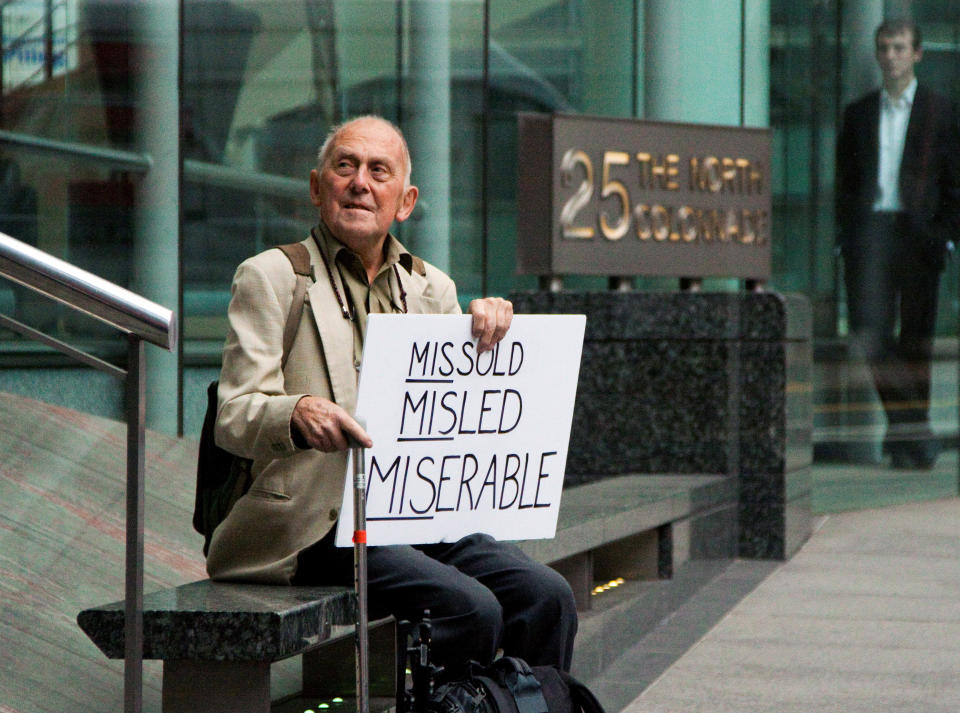The financial crisis 10 years on: Why consumer conditions could create the next perfect storm

‘One must change one’s tactics every ten years if one wishes to maintain one’s superiority’ – Napoleon Bonaparte
I would imagine Napoleon Bonaparte’s strategy for not repeating the mistakes of the global financial crisis 10 years ago would be centred on invading another country. His observation above however is a useful piece of financial advice that too many of us are failing to follow today.
A decade ago the world economy started a slide into deep crisis with the genesis being too much borrowing undertaken by individuals and businesses who could not really afford it. Today we are in danger of repeating a number of these mistakes as past challenges slip into the rear mirror and out of our minds.
MORE: Downing Street says talk of £36bn Brexit divorce bill is ‘wrong’
MORE: Should you be fearful of a stock market crash?
You may not be able to get a 100%+ mortgage using self-certified financial information these days, but years of ultra-low interest rates – ironically brought about in response to the economic backdrop a decade ago – has helped simultaneously buoy house prices and drive mega multiples of income mortgage requirement to be on the housing ladder. The Bank of England may have indicated a week ago that interest rate rises are not imminent, but the current fallacy of affordability at prevailing mortgage rates is a time bomb waiting to happen.
And then we move onto the next big area of discretionary spending: cars. Who remembers ‘cash for clunkers’ as the policy response to negligible car sales? Back then, cash was still a big driver to the automotive sales market but over the last decade – and those low interest rates again – it has driven up the role of innovative finance including these oh-so-clever leasing deals which in exchange for a few hundred pounds a month allows you to drive off in a brand spanking new car. This feels like the next mis-selling crisis to me – and I really would not want to be responsible for those big automotive leasing loan books because you can smell the bad debt potential.
Of course much of this could be alleviated by a little bit of prudence and common sense but the immediacy of today’s society runs counter to this, as expressed by savings rates running at generational lows. Saving may be dull but it buys time and provides options. The challenge today is building savings at a time of low wage growth for the average earner and the aforementioned burdens from higher mortgage and car lease obligations among other borrowings. Higher interest rates would provide some incentive to save, but risks being overwhelmed by the greater repayment schedules for all that debt.
Given there are no easy answers, the UK government and the Bank of England continue with their medicine of low interest rates, budget deficits and stimulus measures, which buys time but is no real solution and in reality is making these issues bigger and badder.
MORE: Bankers still do not understand complex reasons behind financial crash, senior politician warns
You can see this in the world’s stock markets where euphoria levels are soaring as many global indices reach new highs. Financial markets are always deeply psychological and swing between euphoria and grinding fear. The excitement – and breath-taking valuations – even professional investors are displaying towards companies in the internet technology space is indicative of this. All of your favourite internet behemoths are taking over more of all our worlds but everything has a price and huge enthusiasm is currently priced in.

And it doesn’t stop there. Volatility levels in global stock markets – the so-called VIX or ‘fear index’ – are at multi-decade lows. Meanwhile a recent study concluded that on every measure of conventional stock market valuation – earnings, assets, share price movement and investor euphoria – today’s financial markets are trading at racy and overly excitable levels.
That is all except one measure: free cash flow. Think about free cash flow as a company’s surplus to choose whether it wants to pay a dividend, buy back shares, engage in some acquisitions, pay down debt or simply just to bolster its cash balances. This is why free cash flow is King in the world of picking stocks today: a company with good free cash flow is rarely a poor investment and if you pick and choose carefully there are still some out there. So not all is lost.
And generating a surplus should be your strategy too in a world of general imprudence. Have a rainy day fund, don’t borrow what you cannot afford, make your investments carefully in areas you understand the risks in and don’t live just for today. No doubt this is idealistic and hard to achieve but the road to avoid crisis is not easy… but for all our individual finances it is essential.

 Yahoo Finance
Yahoo Finance 
